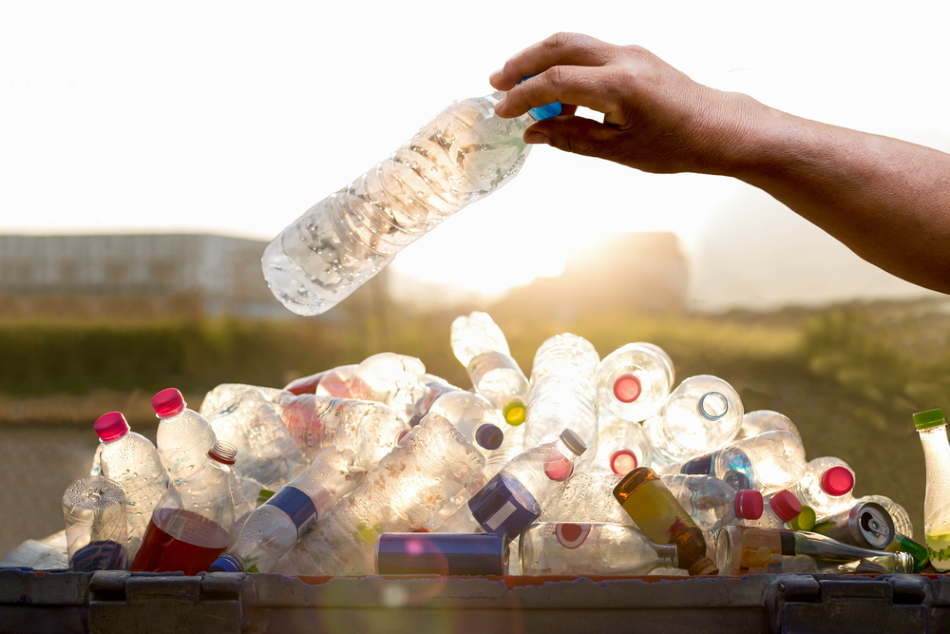Jan 30 2020
A team of researchers have designed a new method for disintegrating plant-based plastics into their initial building blocks, possibly enabling products to be recycled more than once, without any loss in the plastic quality.

Image Credit: Bignai/Shutterstock.com
In the United Kingdom, about 45% of plastic waste is recycled every year and is becoming more common. But one of the issues with present plastic recycling methods is that the final plastic is of low quality, with worse properties compared to the initial one.
This implies that plastic beverage bottles cannot always be easily recycled into new beverage bottles; rather, they can be used for other low-grade products such as park benches, water pipes, and traffic cones.
Researchers from the Universities of Bath and Birmingham have recently created a new chemical recycling method—transforming plastics back into their constituent chemical molecules—ensuring that they can be used to produce new plastics with quality same as that of the original.
Their method has been reported in ChemSusChem and uses more eco-friendly catalysts and lower temperatures than earlier methods.
“Most plastic is currently recycled using mechanical methods, where they are chipped into granules and melted down before being moulded into something new. The problem is, melting plastic changes its properties, and reduces the quality, which limits the range of products in which it can be used,” stated Professor Matthew Jones, from the Centre for Sustainable & Circular Technologies at the University of Bath.
Our method of chemical recycling overcomes this problem by breaking down plastic polymers into their chemical building blocks, so they can be used all over again to make virgin plastic without losing any properties.
Matthew Jones, Professor, Centre for Sustainable & Circular Technologies, University of Bath
The scientists recycled plant-based PLA, which is produced from starch or crop waste rather than petrochemicals and is used in disposable cutlery and cups and “biodegradable” food packaging. At present, PLA is not recycled since it is not extensively used yet, but with increasing awareness of plastic pollution, there is an increasing demand from consumers for recyclable packaging.
In a similar fashion, the scientists have attempted to recycle PET, which is used for beverage bottles.
PLA is being increasingly used as a sustainable alternative for single-use plastics. Whilst it’s biodegradable under industrial conditions, it doesn’t biodegrade with home composting, and isn’t currently recycled, so at the moment it commonly ends up contributing to the tonnes of plastic waste in landfill and oceans.
Dr Paul McKeown, Study Lead Author, University of Bath
“There is no single solution to the problem of plastic waste—the approach has to be a combination of reducing, reusing and recycling. Our method of chemical recycling could allow carbon to be recycled indefinitely—creating a circular economy rather than digging more up from the ground in the form of fossil fuels, or releasing it into the atmosphere as a greenhouse gas,” added Dr McKeown.
To date, the technology has only been proved to work on a small scale; coworkers at the University of Birmingham, however, are currently working to advance the system to generate more amount of starting chemicals.